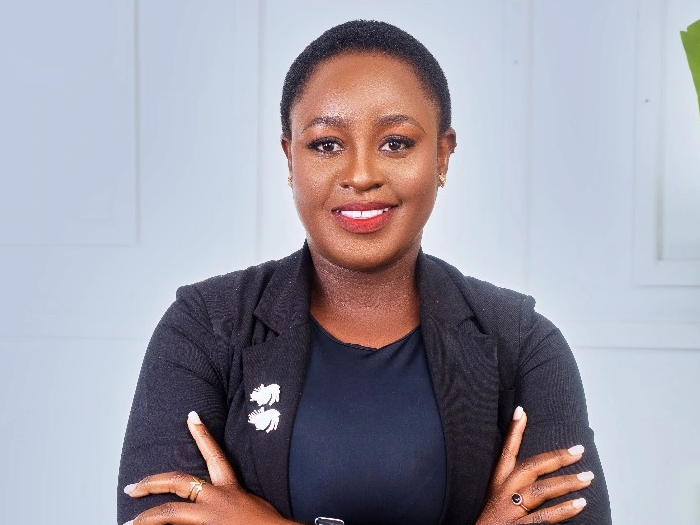Melisa Nemangwe was just 16 when she was sexually assaulted. She had visited the science laboratory to study mathematics with her best friend, Nyasha.
Then her Agriculture teacher appeared, dismissing her friend on an errand. This left just the two of them in the lab, with even little time to process the vague questions he seemed to ask her.
“Before I knew it, he just held my mouth. With his right hand, he held me firmly. The grasp was so firm that I could not even free myself. And then with his left hand, he found his way through the skirt of my school uniform, and he had his way with his fingers,” Nemangwe recalls.
She struggled to wrest herself from his grip, slapping him as she pulled away. When she reported the attack, the female teachers blamed her instead. “Why you among all these students?” they queried. “To some extent, I felt like it was my fault,” Nnemangwe says.
Her school’s unfeeling response pushed her to drinking, which “robbed me of part of my adolescent life that I would have enjoyed as a child,” she says.
Yet she didn’t relent in her quest for justice, escalating the assault to the Ministry of Primary and Secondary Education. By the following week, Nnemmangwe noticed that her teacher had disappeared from the school.
That harrowing experience from her third year in secondary school left Nemangwe with an enduring desire to challenge gender injustices in Zimbabwe’s mining communities–a mission she pursues through the Gender Bridge initiative that she founded years later.
As an orphan, she bore her struggles silently, afraid of being labelled as “the Oliver Twist in the family who asks for more,” she remarks.
In 2019, driven by a deep need for closure, she opted to study psychology at Midlands State University in Zimbabwe.
Nemangwe says that university became an epiphany for her. “That’s when I started connecting the dots.” Through peer education, she discovered that her experience was hardly an isolated case. “At that particular time, I was violated. This is the right that was violated. Oh, these are gender issues.”
It wasn’t long before she committed to advocacy. In her final year, she became the secretary-general of the students’ union, where she became famous for her vocal stance against sexual favours on campus.
Her outspokenness rattled many, including her colleagues, and she was soon relegated to being a committee member.
In the wake of this dismissal, she went full throttle with advocacy, connecting with groups like the Gender Institute and SAYWHAT, where she had trained as a peer educator.
At awareness campaigns, Nemangwe spoke about the realities facing students. It was during one such public address that community members began calling her “Amai” in Shona and “Umama” in Ndebele—both of which translate to “mother.”
The nickname reflected her passion to protect the girl child. Before long, she came to be referred to as “Mama Gender” across campus
One day in 2023, in her final year at university, Nemangwe received a friend request on Facebook. It was the man who had abused her. Seeing the notification instantly reopened old wounds that she thought she had laid to rest.
She reported the situation to the Higher Life Foundation, an organisation supporting orphaned and vulnerable children in Africa through education and material support. As a beneficiary of the foundation, Nemangwe received therapy from a Zimbabwean project for survivors of gender-based violence called MUSASA. At 24, she seemed to find the healing she long sought.
When she first conceived the idea of Gender Bridge, Nemangwe pictured the girl child on one side and the boy child on the other, wondering, “where is the bridge that connects them?”
She was familiar with how well-intentioned advocacy ignited subtle “battles”: girls pushing for long-denied rights, boys feeling left out or threatened. Gender Bridge would become a counterpoint, championing girls’ rights while emphasising the overlooked struggles of the boy child.
Following the Private Voluntary Organisations (PVO) Bill, a law passed in 2024 to tighten state control on how NGOs are registered, led, and funded, the process of registering an NGO in Zimbabwe has become particularly arduous
With the backing of the Young Miners Foundation, however, she registered Gender Bridge under the Zimbabwe Youth Council (Ministry of Youth).
The CEO of the YMF, Payne Farai Kupfuwa, became an advisor to Gender Bridge, noting that her concerns were visible in mining and mining-residential communities.
To devote adequate time to her organisation, Nemangwe left SAYWHAT in 2024. She was abandoning her job to return to mining communities for a baseline study: learning how to approach communities, engage authorities, and build an organisation.
In its relatively short time, Gender Bridge had conducted several projects, thanks to a string of collaborations. Along with partnering with the Young Miners Foundation to integrate gender justice into mining safety trainings, Gender Bridge has formed coalitions with Oxfam and Amnesty International against child marriages.
Much of their campaign takes aim at obstetric fistula, a childbirth injury caused by prolonged, obstructed labour. One in three girls in Zimbabwe married before adulthood has obstetric fistula, which can lead to kidney diseases as well as psychological distress.
Central to its work is the Adolescent and Youth Council, a nine-member leadership body of young people from mining communities helping to shape strategy while also representing the organisation on national and regional platforms.
Its strategies range from lobbying the National AIDS Council to reframing harmful notions of masculinity in mining towns and breaking menstrual taboos with science.
By pushing mine owners to provide basic health facilities and linking business with community well-being, Gender Bridge has shown that resources extend beyond money. At its heart, the organisation is anchored in equity and accountability.
Zimbabwe’s political climate has increasingly stifled civic space. The country was ranked “repressed” in the CIVICUS Monitor in the wake of its PVO Bill.
For youth-led initiatives like Gender Bridge, this shift has been profound. Registration now comes with heavy scrutiny, external funders are cautious, and advocacy spaces have shrunk, leaving groups to either adapt as state-regulated entities or fade out altogether.
Nemangwe recalls being dismissed by a traditional ruler during a public hearing on Zimbabwe’s national budget after she voiced concerns about gender and climate justice. “What do you know about what a man goes through and needs? Focus on your Western agenda, the family work that you do,” he scolded her.
Her age has also opened her to scepticism. Many have dismissed her team as “inexperienced,” accusing them of recycling ideas and triggering gatekeeping from established NGOs.
These criticisms, she says, demonstrate how much harder young, women-led initiatives need to fight for legitimacy.
She’s also drawn some of her experiences into a four-part book series themed “Gendered Realities.” The first, “Chieza”, meaning “light” in Shona, draws on her own adolescent struggles.
Zimbabwe’s predominantly young population—with 67.7% under the age of 35—makes youth-centred leadership models like Gender Bridge essential.
Despite her painstaking dedication, Nemangwe expresses her desire to hand over the reins of Gender Bridge in the next ten years to avoid falling prey to founder syndrome.
“When people hear the name Gender Bridge, I don’t want them to think of Melisa or Mamagenda. I want them to see young people in full force, fighting the gender and SRHR issues they themselves are facing.”
Melisa Nemangwe was sexually assaulted at 16 by her agriculture teacher, but the incident spurred her to become an advocate against gender injustices. Although initially blamed by her school, she pursued justice, leading to the teacher being removed. Her experiences fueled her commitment to address gender issues, especially in Zimbabwe’s mining communities, through her initiative, Gender Bridge. This organization aims to bridge the gap between boys’ and girls’ rights, working alongside organizations like Oxfam and Amnesty International to combat issues like child marriage and the associated physical and psychological effects.
Nemangwe’s advocacy extends to youth education on gender rights, serving as a peer educator and participating in various campaigns. Despite challenges posed by Zimbabwe’s restrictive civic space, Nemangwe continues her pursuit, often facing skepticism due to her age and the young, women-led nature of her initiative. Gender Bridge partners with other organizations to influence mining communities for equitable resources and opportunities. Nemangwe intends to step down in ten years, hoping the movement outgrows her personal involvement, reflecting the collective efforts of the youth in fighting gender and sexual health rights issues.






